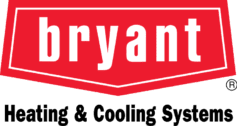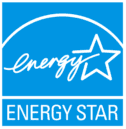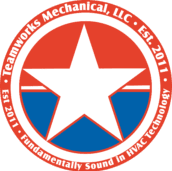Efficient Heating Solutions: Integrating Boilers with HVAC Systems
As concerns about energy efficiency and environmental impact grow, industries are continuously exploring ways to optimize their operations. One area of focus is heating, ventilation, and air conditioning (HVAC) systems, which play a crucial role in maintaining comfortable indoor environments.
Integrating boilers with HVAC systems offers a compelling solution that enhances efficiency, reduces costs, and minimizes the overall carbon footprint. In this blog post, Teamworks Mechanical explores the benefits and strategies of integrating boilers with HVAC systems.
What are the Benefits of Integrating Boilers with HVAC Systems?
Understanding the Basics
Boilers are widely used for generating hot water or steam for heating and industrial processes. On the other hand, HVAC systems are responsible for controlling temperature, humidity, and air quality in buildings. By integrating boilers with HVAC systems, we can harness the thermal energy produced by boilers to efficiently heat indoor spaces.
Increased Energy Efficiency
Integrating boilers with HVAC systems can significantly increase energy efficiency. Instead of maintaining two separate systems, combining them allows for better coordination and optimization. The boiler's thermal energy can be directly utilized to heat the air, which reduces energy wastage. Moreover, modern HVAC systems equipped with smart controls can adjust heating output based on the building's specific requirements, avoiding unnecessary energy consumption.
Cost Savings
Efficiency improvements lead to cost savings. Integrating boilers with HVAC systems can lower utility bills by reducing energy consumption and optimizing system performance. Businesses and homeowners alike can benefit from the long-term financial advantages of such integration.
Enhanced Environmental Impact
One of the most compelling reasons to integrate boilers with HVAC systems is the positive impact on the environment. By using boilers' thermal energy more effectively, we can lower greenhouse gas emissions and decrease the overall carbon footprint of buildings. This integration aligns with sustainable practices and contributes to a greener future.
Strategies for Integration
a. Hydronic Heating Systems: Hydronic systems utilize water as a heat-transfer medium. By integrating boilers with hydronic HVAC systems, heated water circulates through pipes and radiators, providing consistent and comfortable heating throughout the building.
b. Heat Exchangers: Heat exchangers are devices that allow the transfer of thermal energy between two mediums without mixing them. By connecting the boiler to the heat exchanger, the HVAC system can harness the boiler's heat without directly incorporating it into the air supply.
c. Smart Controls and Automation: Implementing smart controls and automation is crucial for maximizing the benefits of integration. Sensors and algorithms can continuously monitor indoor conditions and adjust the HVAC system's settings and the boiler's output accordingly, ensuring optimal performance.
d. Thermal Storage: Thermal storage systems allow excess heat generated by the boiler to be stored for later use. This stored energy can then be utilized during peak demand periods, reducing the need for the boiler to run at full capacity continuously.
Integrating boilers with HVAC systems is a win-win solution for improving energy efficiency, cutting costs, and reducing environmental impact. By leveraging the boiler's thermal energy in conjunction with smart controls and innovative strategies, buildings can achieve optimal indoor comfort while minimizing energy wastage. As the world embraces sustainability and energy-conscious practices, this integration serves as a significant step towards creating greener and more efficient heating solutions.




















